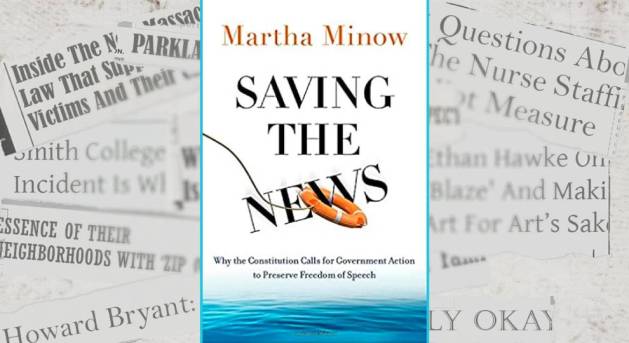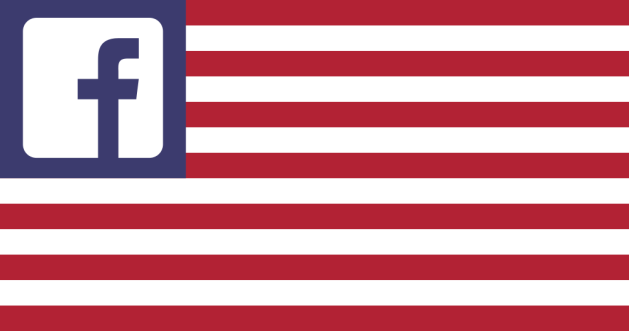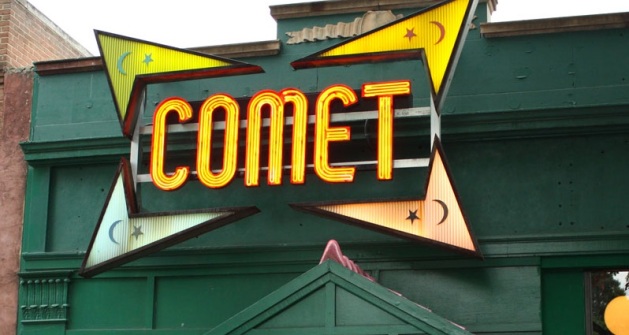
Photo (cc) 2008 by Craig ONeal
Previously published at GBH News.
How bad is it for Facebook right now? The company is reportedly planning to change its name, possibly as soon as this week — thus entering the corporate equivalent of the Witness Protection Program.
Surely, though, Mark Zuckerberg can’t really think anyone is going to be fooled. As the tech publisher Scott Turman told Quartz, “If the general public has a negative and visceral reaction to a brand then it may be time to change the subject. Rebranding is one way to do that, but a fresh coat of lipstick on a pig will not fundamentally change the facts about a pig.”
And the facts are devastating, starting with “The Facebook Files” in The Wall Street Journal at the beginning of the month; accelerating as the Journal’s once-anonymous source, former Facebook executive Frances Haugen, went public, testified before Congress and was interviewed on “60 Minutes”; and then exploding over the weekend as a consortium of news organizations began publishing highlights from a trove of documents Haugen gave the Securities and Exchange Commission.
No one can possibly keep up with everything we’ve learned about Facebook — and, let’s face it, not all that much of it is new except for the revelations that Facebook executives were well aware of what their critics have been saying for years. How did they know? Their own employees told them, and begged them to do something about it to no avail.
If it’s possible to summarize, the meta-critique is that, no matter what the issue, Facebook’s algorithms boost content that enrages, polarizes and even depresses its users — and that Zuckerberg and company simply won’t take the steps that are needed to lower the volume, since that might result in lower profits as well. This is the case across the board, from self-esteem among teenage girls to the Jan. 6 insurrection, from COVID disinformation to factional violence in other countries.
In contrast to past crises, when Facebook executives would issue fulsome apologies and then keep right on doing what they were doing, the company has taken a pugnacious tone this time around, accusing the media of bad faith and claiming it has zillions of documents that contradict the damning evidence in the files Haugen has provided. For my money, though, the quote that will live in infamy is one that doesn’t quite fit the context — it was allegedly spoken by Facebook communications official Tucker Bounds in 2017, and it wasn’t for public consumption. Nevertheless, it is perfect:
“It will be a flash in the pan,” Bounds reportedly said. “Some legislators will get pissy. And then in a few weeks they will move onto something else. Meanwhile we are printing money in the basement, and we are fine.”
Is Facebook still fine? Probably not. At the moment, at least, is difficult to imagine that Facebook won’t be forced to undergo some fundamental changes, either through public pressure or by force of law. A number of news organizations have published overviews to help you make sense of the new documents. One of the better ones was written by Adrienne LaFrance, the executive editor of The Atlantic, who was especially appalled by new evidence of Facebook’s own employees pleading with their superiors to stop amplifying the extremism that led to Jan. 6.
“The documents are astonishing for two reasons: First, because their sheer volume is unbelievable,” she said. “And second, because these documents leave little room for doubt about Facebook’s crucial role in advancing the cause of authoritarianism in America and around the world. Authoritarianism predates the rise of Facebook, of course. But Facebook makes it much easier for authoritarians to win.”
LaFrance offers some possible solutions, most of which revolve around changing the algorithm to optimize safety over growth — that is, not censoring speech, but taking steps to stop the worst of it from going viral. Keep in mind that one of the key findings from the past week involved a test account set up for a fictional conservative mother in North Carolina. Within days, her news feed was loaded with disinformation, including QAnon conspiracy theories, served up because the algorithm had figured out that such content would keep her engaged. As usual, Facebook’s own researchers sounded the alarm while those in charge did nothing.
In assessing what we’ve learned about Facebook, it’s important to differentiate between pure free-speech issues and those that involve amplifying bad speech for profit. Of course, as a private company, Facebook needn’t worry about the First Amendment — it can remove anything it likes for any reason it chooses.
But since Facebook is the closest thing we have to a public square these days, I’m uncomfortable with calls that certain types of harmful content be banned or removed. I’d rather focus on the algorithm. If someone posts, say, vaccine disinformation on the broader internet, people will see it (or not) solely on the basis of whether they visit the website or discussion board where it resides.
That doesn’t trouble me any more than I’m bothered by people handing out pamphlets about the coming apocalypse outside the subway station. Within reason, Facebook ought to be able to do the same. What it shouldn’t be able to do is make it easy for you to like and share such disinformation and keep you engaged by showing you more and — more extreme — versions of it.
And that’s where we might be able to do something useful about Facebook rather than just wring our hands. Reforming Section 230, which provides Facebook and other internet publishers with legal immunity for any content posted by their users, would be a good place to start. If 230 protections were removed for services that use algorithms to boost harmful content, then Facebook would change its practices overnight.
Meanwhile, we wait with bated breath for word on what the new name for Facebook will be. Friendster? Zucky McZuckface? The Social Network That Must Not Be Named?
Zuckerberg has created a two-headed beast. For most of us, Facebook is a fun, safe environment to share news and photos of our family and friends. For a few, it’s a dangerous place that leads them down dark passages from which they may never return.
In that sense, Facebook is like life itself, and it won’t ever be completely safe. But for years now, the public, elected officials and even Facebook’s own employees have called for changes that would make the platform less of a menace to its users as well as to the culture as a whole.
Zuckerberg has shown no inclination to change. It’s long past time to force his hand.








